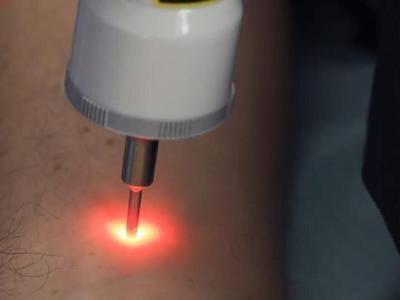Menopause
Going Through the Change the Right Way
Menopause is a major milestone in the life of a woman, marking the end of her menstrual cycles once she has gone without a period for 12 months.
On average, women reach menopause in their early 50s, but it is not uncommon for women to experience the change in their 40s and, in some cases, much earlier.
Unfortunately, menopause can also trigger a number of uncomfortable and unsettling physical and emotional symptoms that can make this rite of passage an utterly miserable experience.
As Neomed’s Functional Medicine Practitioner and Nutritionist Tina Christoudias-Spyrou says: “Some people go through menopause fine, while others experience low to moderate to very severe reactions, and they are the people who come to us for help.”
Causes and Symptoms of Menopause
Menopause is a natural biological process that typically begins when a woman is in her late 30s and her ovaries make less oestrogen and progesterone, resulting in declining fertility. However, surgery, such as a hysterectomy or oophorectomy, will cause immediate menopause. Chemotherapy and radiation therapy can also induce menopause, while 1% of women will experience premature menopause, possibly due to primary ovarian insufficiency whereby the ovaries fail to produce normal levels of reproductive hormones. This can stem from genetic factors or autoimmune disease, but in many cases, no reason for premature menopause can be found and hormone therapy is typically recommended until the natural age of menopause in order to protect the brain, heart and bones from early deterioration.
Among the many symptoms that women experience during perimenopause, the time leading up to the complete cessation of menstrual periods, and menopause are:
- Irregular periods
- Vaginal dryness
- Hot flushes
- Chills
- Sleep problems
- Mood swings
- Weight gain
- Thinning hair and dry skin
- Loss of breast fullness
Many of these physical symptoms disrupt sleep patterns resulting in lower energy levels and more volatile mood swings.
“When we go through menopause, we experience a big hormonal switch,” explains Tina. “And because hormones all talk to each other, if one is out of whack, so is the rest. Imagine a line of dominoes set up perfectly. If you nudge one, the rest start falling. It’s the same idea with our hormones.
“Also, the symptoms one gets with menopause is a big indication of the overall health of that person. So, if the person is already enflamed without knowing it, they may experience severe hot flushes throughout the night and day, they may suffer from depression or see the start of a thyroid problem. They may also see weight gain, especially around the middle, and they may have trouble sleeping at night.
“For many people, menopause can badly affect the quality of their lives and they will need help.
“At Neomed, using detoxification protocols and hormonal regulation we can get these people back to feeling like normal people again.”
How We Can Help
At Neomed, we use the DUTCH Test to examine reproductive and adrenal hormones along with melatonin and oxidative stress. The DUTCH test (Dried Urine Test for Comprehensive Hormones) is considered to be the gold standard in hormone testing, and involves the collection of a small amount of urine on filtered paper four times a day. Hormone metabolites are measured from the dried urine samples. The hormones measured in the test include cortisol, cortisone, oestrogen, progesterone, testosterone and melatonin. Oestrogen metabolism pathways are also measured.
“This test not only looks at various hormones, it also gives practitioners a view of the kind of detoxification pathways that are hindered going through the process of menopause,” says Tina. “For example, when our body’s oestrogens are detoxified or even before they are detoxified, if we have a lot of inflammation, it can create a lot of bad oestrogens, which can be carcinogenic. The DUTCH test helps us to pick up that metabolic pathway and we give supplements to stop the production of these bad oestrogens.”
Although menopause is typically associated with a decrease in oestrogen levels, some women may still be oestrogen dominant despite these lowering levels.
“Oestrogen dominant means there is too much oestrogen compared to progesterone levels,” says Tina. “So, if you’re a person sweating all through the night and not sleeping well, this is a very good indication that your progesterone levels are not high enough. We then look further upstream when this happens because we need to check the adrenals and the thyroid.
“Today’s women lead extraordinarily busy lives and the adrenals often get burned out, meaning their thyroid and sex hormones won’t feel the need to work so hard because they think they are going to die and are now in survival mode now. So, we always look at the adrenals first and then we look at thyroid function.
“We need thyroid function for every cell in the body, and to produce healthy amounts of progesterone.”
Hormone Replacement the Safe Way
Hormone replacement is designed to relieve symptoms of menopause by replacing sinking hormone levels. The main benefit of hormone replacement therapy is that it can help relieve most menopausal symptoms. However, some types of Hormone Replacement Therapy can increase the risk of breast cancer. At Neomed, we use herbal remedies and natural modifications for the body to enable it to produce its own natural oestrogens and progesterone.
“If a woman is in dire straits, we can offer them bioidentical hormones,” says Tina. “These are not synthetically made, but identical to what your body would be producing. They are safer types of hormones and we are trained to give these hormones to people so that they see relief from their symptoms.
“Saying that this is the last line of action for us as our emphasis is on helping the body to produce its own stuff. That’s the ideal.”
For more information on Neomed’s menopause protocols, you can fill in the form below:







